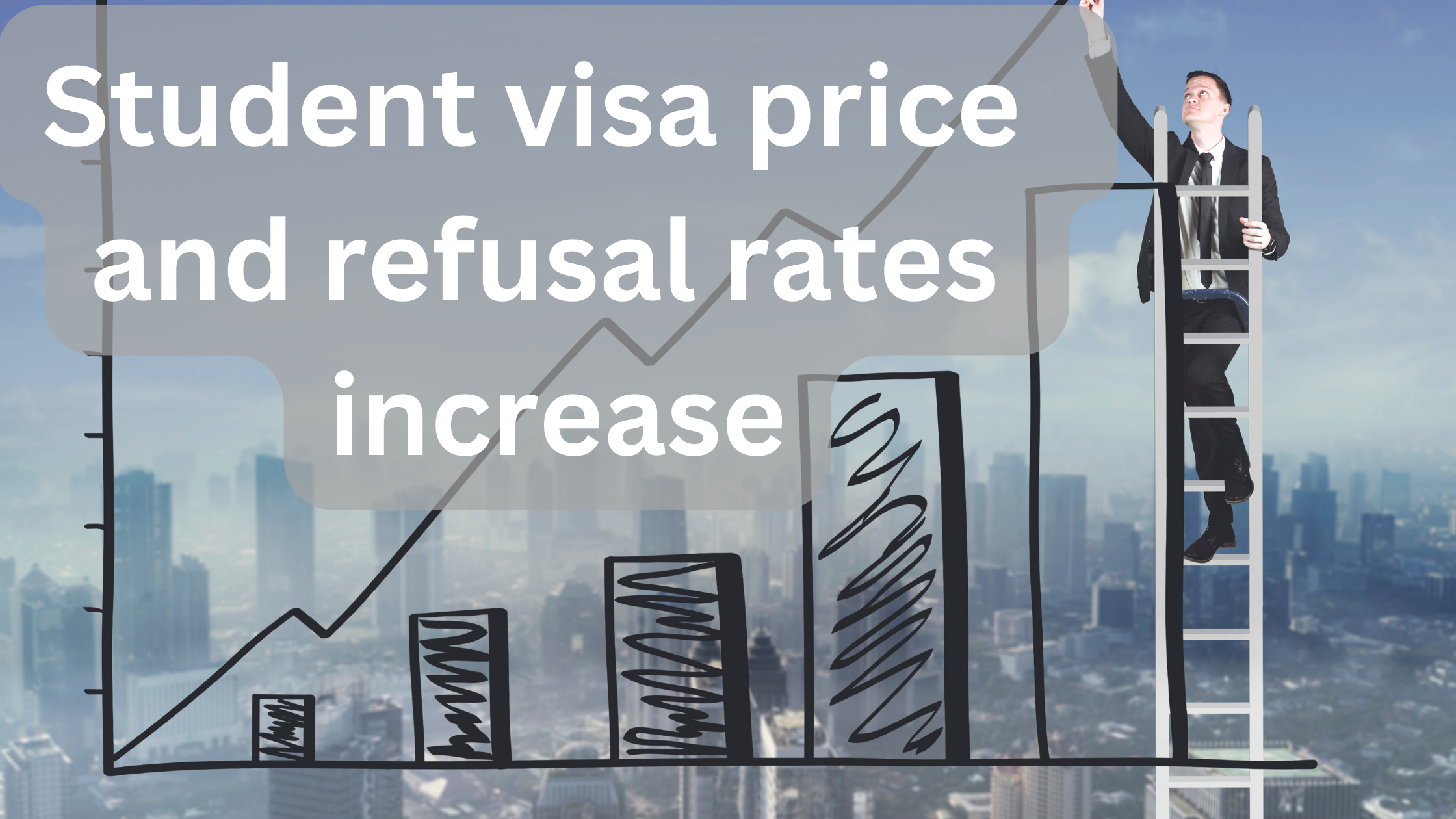Student visa price and refusal rates increase
The PIE News reported concerns that the government might increase visa fees for international students in the upcoming May budget, further complicating student mobility in light of recent policy changes.
There are indications that Canberra could raise international student visa fees from the current $710 next month, although the exact increase has not been confirmed. The Grattan Institute’s proposal to raise the fee to $2,500 is not feasible, according to the stakeholders in the international education community, who would hope that this is the case. On the other hand, the United Kingdom has recently proposed an increase of 35 percent of their fees; consequently, we might anticipate a similar increase, which would amount to AUD$958. IEAA’s Phil Honeywood says any rise above the Consumer Prices Index would make Australia “globally uncompetitive.”.
Troy Williams, CEO of ITECA, criticised the potential fee hike as inconsistent with the government’s stated goal of reducing the size of the international education sector, emphasising the valuable cultural and societal contributions of overseas students.
The sector is already facing difficulties as a result of declining visa grant rates, particularly for ELICOS (English Language Intensive Courses for Overseas Students) students. This downturn, coupled with other factors like increased English requirements, has led to significant declines in visa grant rates for students from India, Pakistan, Brazil and Colombia. Furthermore, applicants from Colombia, Peru, Turkey and China all saw grant rates plummet or decline in January. Figures released this week by English Australia for January show that visa grant rates for VET or ELICOS & VET students have plummeted to 85.2%, and the average grant rate has fallen to the “devastatingly low 57%” for ELICOS visa applications offshore.
Additionally, there are fears that a cap on international student numbers, similar to the one implemented in Canada, could be introduced in Australia in the future. Such measures, along with raised visa application fees, threaten the livelihoods of many Australians involved in providing education services to international students.
English Australia said that the government continues to “choke the sector of incoming students” with its current visa processing approach, applicants have been facing unexpected visa rejections since late last year.
These actions, combined with increased visa application fees, jeopardise the livelihoods of numerous Australians engaged in the international education industry. Regrettably, smaller providers often receive little attention, despite being the foundation of international education in Australia. Unless the government acknowledges the industry voices, it is abundantly clear that we must come to anticipate a difficult journey ahead.





Leave A Comment